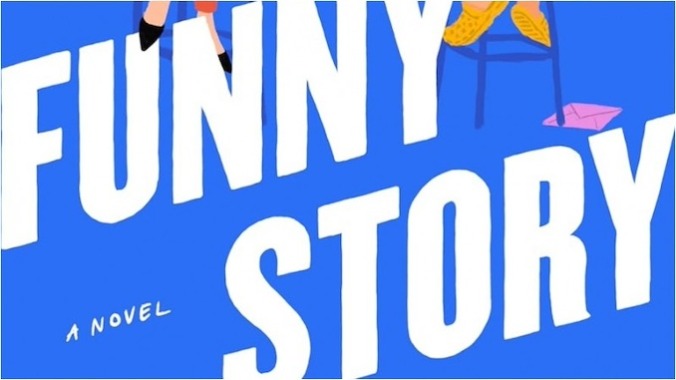Emily Henry’s Funny Story Has Lots of Heart But Too Little Mischief

“Sometimes I believe that some people are better at love than others, and sometimes I believe that everyone is faking it.” These words, penned by the great Nora Ephron, come from her autobiographical novel Heartburn. But they also cut to the heart of the contemporary romantic comedy and the particular obstacles its leads tend to face. It is not societal expectations, royal bloodlines, or vows of chastity that stand in the way of true love, but, rather, emotional baggage, self-protective humor, and the angst that comes from watching the three-little-dots on iMessage disappear without remark.
Novelist Emily Henry has drawn regular comparisons to Ephron, not least of all because Henry herself has cited Ephron as her “biggest influence.” In particular, she speaks to the “coziness of [Ephron’s] worlds,” but Henry’s characters also seem like they could sit down and talk with Ephron’s, if Harry and Sally were willing to fly out to Michigan for a lakeside dinner. Her leading ladies are not hollow impressions of avid readers (“You like fiction books?”); they think and talk like women more comfortable diving into a new novel than into a new relationship. Some readers might find this, as they say, relatable. Both the men and the women stumble, but their clumsiness is not always cute. As a master of the genre, Henry knows how to keep the stakes high but the vibe relatively light.
And because the best romantic comedies soothe audiences even as they surprise them, Henry has done her own spins on the classic tropes of the genre. Her debut romance for adults, and arguably her best novel, is Beach Read, which broke through with readers a few months into COVID lockdown. About two neighboring novelists (one romance, one “serious literary fiction”) who try to write in one another’s vein, Beach Read works as a kind of authorial mission for Henry on how the literary and the generic can exist in blissful, sexy harmony. It is also, happily, a variation on one of my personal favorites: the ol’ “that scowl he’s been giving you for ten years is actually a smolder – he’s loved you all along, you insecure goddess!” Her follow-up, People We Met on Vacation, is a best friends-to-lovers tale, Book Lovers rivals-to-lovers, and Happy Place a non-screwball comedy of remarriage.
We all—we being “consumers of romance”—have our favorite plots, and Funny Story promised to follow one of mine: the pretend-lovers storyline. A tale as old as Shakespeare (sort of), what makes the pretend-lovers romance so enticing is the simmering sexual tension, typically accompanied by the prickliness or hostility that comes with a bad first impression or a grudge: it’s The Wedding Date, the Leap Year, the Anyone But You of it all. But it also speaks to Ephron’s wisdom, namely that we are all unskilled at love, that we are all faking it, that we could all use a little practice before love goes live.
-

-

-

-

-

-

-

-

-

-

-

-

-

-

-

-

-

-

-

-

-

-

-

-

-

-

-

-

-

-

-

-

-

-

-

-

-

-

-

-








































